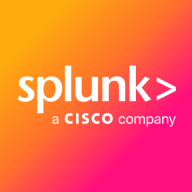

Splunk Enterprise Security and Google Cloud's operations suite are prominent competitors in cloud-based log management. Splunk seems to have the upper hand due to its comprehensive capabilities in log analysis and extensive operational intelligence.
Features: Splunk Enterprise Security offers rapid search and indexation of diverse data, schema-on-read technology, and robust operational intelligence. It excels in managing extensive logs from various sources and supports scalability. On the other hand, Google Cloud's operations suite provides seamless integration with Google services, efficient logging, and monitoring for cloud-native applications.
Room for Improvement: Splunk requires simplification in its deployment process as it can be complex and resource-intensive. Users also seek enhanced visualization and a more flexible pricing model. Google Cloud's operations suite could improve its logging analytics and provide detailed request-level insights, crucial for in-depth operational understanding.
Ease of Deployment and Customer Service: Splunk supports both cloud and on-premises deployments with an extensive support network and active forums, though support quality can vary. Google Cloud's suite integrates smoothly within Google's ecosystem and is optimal for environments focused on cloud-native integration, although less flexible for on-premises models.
Pricing and ROI: Splunk Enterprise Security is costly yet delivers significant value, especially for large-scale deployments requiring detailed analytics and security insights. In contrast, Google Cloud's operations suite is more budget-friendly, appealing to organizations using Google Cloud resources, aligning costs with its core cloud services.
| Product | Mindshare (%) |
|---|---|
| Splunk Enterprise Security | 6.8% |
| Google Cloud's operations suite (formerly Stackdriver) | 0.8% |
| Other | 92.4% |

| Company Size | Count |
|---|---|
| Small Business | 2 |
| Midsize Enterprise | 1 |
| Large Enterprise | 8 |
| Company Size | Count |
|---|---|
| Small Business | 112 |
| Midsize Enterprise | 50 |
| Large Enterprise | 266 |
Real-time log management and analysis
Cloud Logging is a fully managed service that performs at scale and can ingest application and platform log data, as well as custom log data from GKE environments, VMs, and other services inside and outside of Google Cloud. Get advanced performance, troubleshooting, security, and business insights with Log Analytics, integrating the power of BigQuery into Cloud Logging.
Built-in metrics observability at scale
Cloud Monitoring provides visibility into the performance, uptime, and overall health of cloud-powered applications. Collect metrics, events, and metadata from Google Cloud services, hosted uptime probes, application instrumentation, and a variety of common application components. Visualize this data on charts and dashboards and create alerts so you are notified when metrics are outside of expected ranges.
Stand-alone managed service for running and scaling Prometheus
Managed Service for Prometheus is a fully managed Prometheus-compatible monitoring solution, built on top of the same globally scalable data store as Cloud Monitoring. Keep your existing visualization, analysis, and alerting services, as this data can be queried with PromQL or Cloud Monitoring.
Monitor and improve your application's performance
Application Performance Management (APM) combines the monitoring and troubleshooting capabilities of Cloud Logging and Cloud Monitoring with Cloud Trace and Cloud Profiler to help you reduce latency and cost so you can run more efficient applications.
Splunk Enterprise Security delivers powerful log management, rapid searches, and intuitive dashboards, enhancing real-time analytics and security measures. Its advanced machine learning and wide system compatibility streamline threat detection and incident response across diverse IT environments.
Splunk Enterprise Security stands out in security operations with robust features like comprehensive threat intelligence and seamless data integration. Its real-time analytics and customizable queries enable proactive threat analysis and efficient incident response. Integration with multiple third-party feeds allows detailed threat correlation and streamlined data visualization. Users find the intuitive UI and broad compatibility support efficient threat detection while reducing false positives. Despite its strengths, areas such as visualization capabilities and integration processes with cloud environments need enhancement. Users face a high learning curve, and improvements in automation, AI, documentation, and training are desired to maximize its potential.
What Are the Key Features of Splunk Enterprise Security?In specific industries like finance and healthcare, Splunk Enterprise Security is instrumental for log aggregation, SIEM functionalities, and compliance monitoring. Companies leverage its capabilities for proactive threat analysis and response, ensuring comprehensive security monitoring and integration with various tools for heightened operational intelligence.
We monitor all Log Management reviews to prevent fraudulent reviews and keep review quality high. We do not post reviews by company employees or direct competitors. We validate each review for authenticity via cross-reference with LinkedIn, and personal follow-up with the reviewer when necessary.